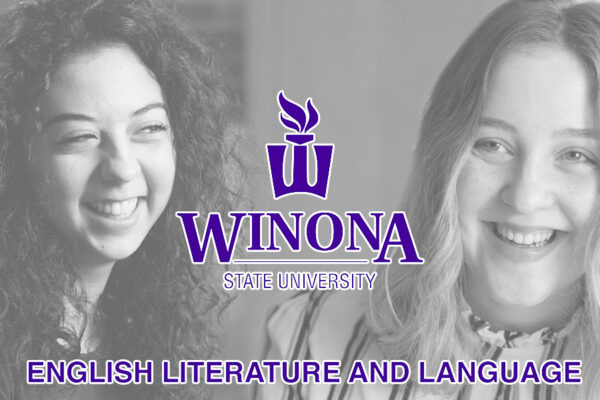Literature & Language Program
Study everything from Shakespeare’s plays to modern masterpieces by Toni Morrison as a Literature and Language major at WSU.
Your courses will foster in-demand skills like creativity, curiosity, collaboration, research, empathy, and writing, setting you up for success for the professional world.
Every year, our faculty engage in a wide range of scholarly and professional activities. This allows them to bring their expertise and experience to help students in their own scholarly and creative projects.
Declare Your Major in Literature & LanguageProgram at a Glance
The Literature and Language major consists of 40 credits.
You’ll learn about the evolution of English—from its origins to its present status as a global language—and how literature communicates human experience and thought across time and place.
You’ll also complete coursework and projects in the history of language and literature, theory and criticism, major writers, genres, and special topics.
The best part: you have the flexibility to choose the classes you want to take to make sure the program fits your interests.
Get Involved on Campus
English students enjoy visiting author events, guest talks, and extracurricular experiences such as:
- The Great River Reading Series
- The Frozen River Film Festival
- Faculty-led program courses in Northern England, London, and Italy
You can also write for, edit, or help publish Satori, the English Department’s annual literary journal, or WSU’s campus newspaper, The Winonan.
For even more experience outside the classroom, you can work as a tutor in the university’s Writing Center.
Students can also join the Winona Wordsmiths, a student-led reading group that meets weekly to read each other’s fiction and poetry.
Get a Job in Any Field
As a Literature and Language major, you’ll have developed strong writing, research, and critical thinking skills, which are all highly valued by employers in nearly every field.
Our graduates have gone on to:
- attend graduate school in English, creative writing, and library science
- attend law school
- become grant and technical writers
- teach English abroad
- volunteer for the Peace Corps
- work as editors and publishers
- work with non-profit organizations
